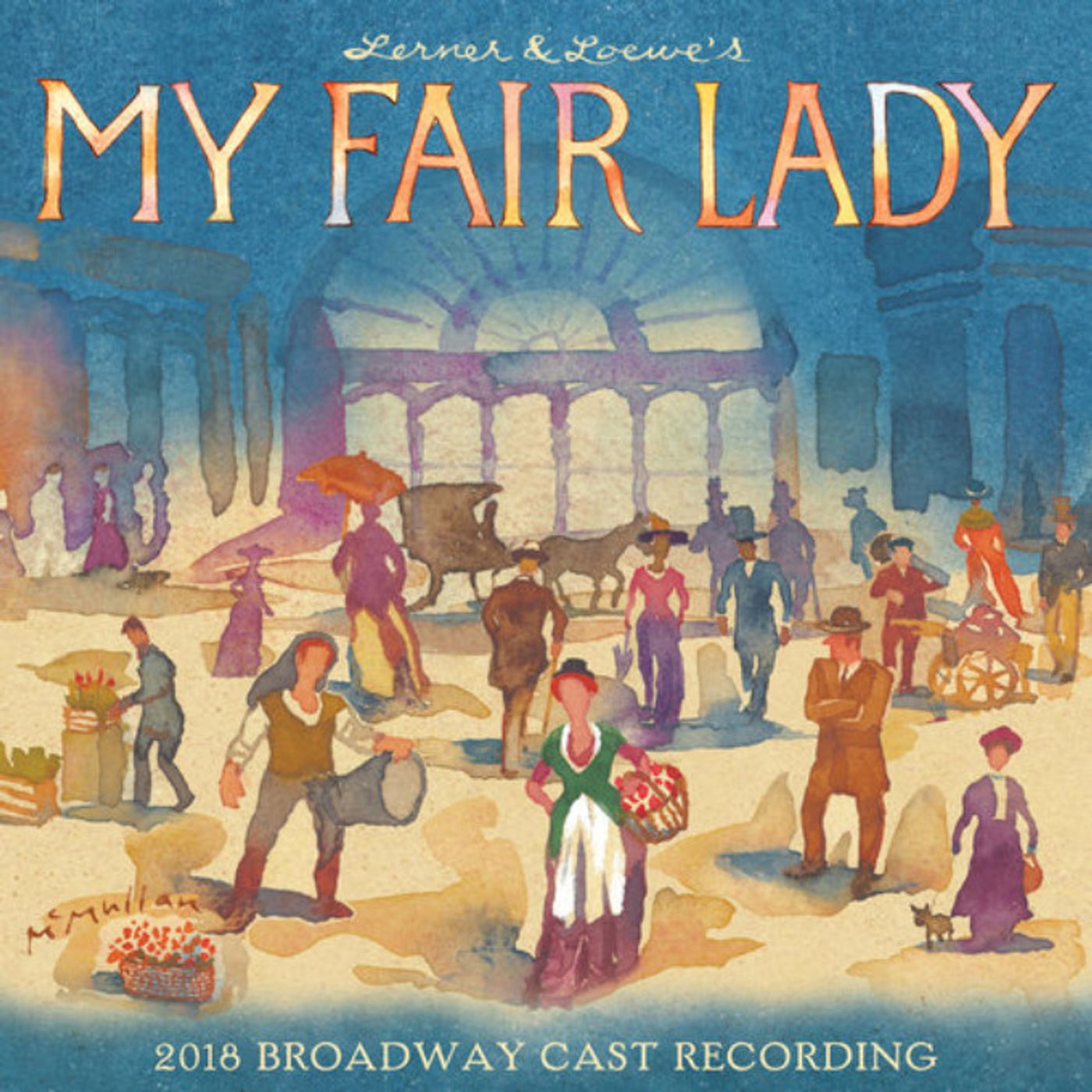BWW Album Review: MY FAIR LADY Is Beyond 'Loverly'

If you've ever been involved in high school or community theatre, you probably have a My Fair Lady memory. Mine is of my junior year of high school, waltzing around in a vintage amber-colored gown (complete with mildly uncomfortable vintage proportions) and trying desperately to hang onto the alto harmonies despite my utter lack of singing talent (I managed, but Marni Nixon I was not). But it was one of the most thrilling experiences of my life, and listening to the lush, glorious cast recording for Lincoln Center's revival brought back all those warm memories in the best way. For newcomers just discovering this classic gem, it's a delightful introduction. For longtime aficionados, it'll have you dancing all night.
The art of the overture has been lost in today's shows, which often utilize just a quick bit of music before the curtain rises instead of a full preview of the music you're about to hear. Fortunately for us, this revival features a full twenty-nine-piece orchestra - under the always-excellent music direction of Ted Sperling - in all its glory. The orchestra proves to be one of the standout elements among the many excellent turns on this album, with a richness and attention to detail only truly appreciated at this scale.
My Fair Lady's most recognizable songs - with one exception - can pretty much be sorted into three categories: the songs we use to measure an Eliza, the ones we use to measure a Higgins, and Doolittle's two showstoppers. Eliza's are probably the best-known in the score: the quintessential "I want" song "Wouldn't It Be Loverly," and the joyful "I Could Have Danced All Night." Lauren Ambrose's casting raised some eyebrows when it was first announced, but for the still unconverted, her vocals on these two songs should put any doubts to rest. Her "Loverly" resists the urge to lean too heavily on the comic potential of the song (and of the Cockney accent), instead giving a slightly quieter performance that brings Eliza's deep-seated longing to the fore. And as far as "I Could Have Danced All Night," she positively soars to the point where you feel Eliza's giddy elation in your own heart.
Eliza's not the only Doolittle who has a chance to shine. The ridiculously versatile Norbert Leo Butz gets a pair of showstoppers as Alfred P. Doolittle, that shamelessly mercenary "philosopher" who's less rough-around-the-edges and more sandpaper-all-over. "With A Little Bit Of Luck" picks things up early in Act 1, while "Get Me To The Church On Time" radiates with madcap comic energy and glee.
It's hard to find enough space to talk about all the true excellence on this album. The harmonies on "Ascot Gavotte" are as precise and rich as anyone could hope for, and the lush orchestrations first heard in the overture are on full display in the "Embassy Waltz." And as for the sole truly, utterly romantic song in the score, Jordan Donica delivers a towering, soaring rendition of "On The Street Where You Live," one that makes you believe Freddy the society fop is capable of real, deep feelings. Every detail is perfectly and carefully constructed.
Speaking of which, there's probably no leading man in musical theatre as carefully constructed as Professor Henry Higgins. Henry Hadden-Paton is a younger (and more melodic) Higgins than we're used to, but he's also perfectly fussy, self-centered, and precise. "Why Can't The English?" and "I'm An Ordinary Man" allow him to show his dexterity with Higgins's trademark densely-packed patter while also making it clear that this isn't a Rex Harrison impression - this is his own creation.
We can't talk about My Fair Lady without talking about the central relationship: that push-pull battle of wills between its two stubborn leads. The score is constructed for us to see more of Eliza's side - and, indeed, we sympathize more with her longing than with Higgins's arrogance. Eliza's two less-famous songs, "Just You Wait" in Act 1 and "Without You" in Act 2 are the perfect bookends for the journey of that relationship. In the former, she's still rough in her expressions, gleefully imagining horrible, violent punishments for Higgins's over-exacting tutelage. But in "Without You," Eliza has become as precise and observant as her teacher, if not more so. She takes aim at Higgins not with "low" threats of violence that he would find amusing, but with a clipped and calm statement of his own irrelevance - his real weakness. Ambrose finds the connection between the two moments in her vocal performance, and the result is stunning.
Much has been already said about the ending of this production, and I won't go into details for those who have not yet seen or heard. What I will say is this: it's possibly the most raw, genuine, and bittersweet version of the final ten minutes I've ever heard. Hadden-Paton's "I've Grown Accustomed To Her Face" is that wonderful contradiction between his past stubbornness being unwilling to admit his present feelings. It's deeply felt and captures every bit of Higgins's emotional state (not that Higgins ever admits to having emotions). Unlike other recordings, this one preserves the final exchange of dialogue between Higgins and Eliza. Suffice it to say that it's resigned, bittersweet, and dramatically satisfying - fresh and unexpected without changing a single word. It's emblematic of the album as a whole: retaining that lush Golden Age elegance while drawing out raw emotions in a fresh, smart way. That's what I would call truly loverly.
Reader Reviews
Videos

